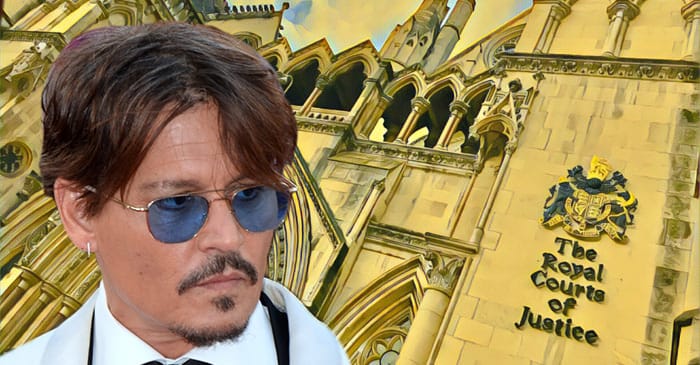Skip to main content
Legal and Ethical Issues
Legal
Authorship and Ownership Issues: Intellectual Property Rights
Intellectual property refers to anything that is created by using your mind and covers, in the context of the creative industries, everything from a story to a logo. That intellectual property can be legally protected through various means including copyright, trade marks and patents. A recent example of a company protecting its intellectual property rights is Pearson Education who publish textbooks filing a suit against Chegg, an education technology company for copyright infringement caused by Chegg selling answers to end of chapter questions included in Pearson textbooks, with the answers taken directly from Pearson text (the two companies were previously in a business partnership). The case is ongoing.
Data Protection Act Privacy
![PS4 Pro]()

The Data Protection Act 2018 is the the UK's implementation of the European Parliment's General Data Protection Regulation (GDPR) which is the primary law regulating the protection of EU citizen's personal data. Not adhering to the requirements of the Data Protection Act can have serious adverse consequences for creative industries. In 2013, Sony was fined £250K for a 'serious breach' of the Data Protection Act by failing to use the most up to date security software on its Playstation Network which led to hackers aquiring Playstation store customers' personal information including credit card details.
Libel and Slander

Libel and slander are the two legal bases on which someone can sue for deformation, a generally accepted definintion of which is something untrue that is spoken or written about another person which is likely to harm their reputation. The difference between libel and slander is that slander is most often spoken and libel is most often written. A recent high profile libel case related to the creative industries was Deppvs News Group Newspapers where actor Johnny Depp took the publishers of the Sun newspaper to court for an article which called him 'wife beater Depp'.
Equality Act 2010: Accessibility
According to gov.uk, the Equality Act 'legally protects people from discrimination in the workplace and in wider society'. One requirenent of the act is that owners are legally obliged to ensure their websites and apps are accessble to all users. This involves ensuring that the website or app meets the international WCAG 2.1 AA accessibility standard.
Obscene Publications Act
On it's website, the Crown Prosecution Service explains that the 'Obscene Publications Act 1959 ....criminalises the publication (whether or not for gain) of
an obscene article. It also criminalises a person who has an obscene
article for publication for gain (personal gain, or gain for another),
to be interpreted in accordance with the provisions of the Obscene
Publications Act 1964. It lists some of the possible offences as including the 'possession of an extreme pornographic image, contrary to section 63 Criminal Justice and Immigration Act 2008' and the 'taking, making, distributing or publishing indecent images or pseudo-images of children, contrary to section 1 Protection of Children Act 1978; possession of an indecent image of a child, contrary to section 160 Criminal Justice Act 1988; possession of prohibited images of children, contrary to section 62 Coroners and Justice Act 2009'.
Film and video creators need to be aware of the act and its possible contravention and ensure that nothing included in their work might attract a prosecution under the act which could lead to the work being banned or a prison sentence.
Computer Misuse Act
According to the National Crime Agency, the Computer Misuse Act makes unauthorised access to computer material a criminal offence. In addition, unauthorised access that causes the impaired operation of or damage to a computer is also an offence. The unauthorised access could take the form of hacking or simply using someone else's login information without their permission. As the creative industries relay heavily on computer technology (in a similar way to many other industries) it is imperitve that there is adequate controls and policies over the use and protection of computers to avoid hacking, scamming, fruad and identity theft.
Contracts
Legally binding contracts can affect many aspects of the operation of a ceative business from a tenanacy agreement for office space to employment contracts or contracts for products and services such as mobile phones. Companies need to be aware of their obligations under such contratcs to ensure the smooth running of their businesses.
Ethical
Relationships with Client
Creative industries, just as any other business, need to maintain ethical relationships with their clients. Therefore, there needs to be a moral dimension to the relationship that ensures fairplay and an even playing field so that neither party is taken advantage of, either in a financial nature or in other ways, for example the infringement of intellectual property rights.
Blasphemy

Blasphemy is defined by the Cambridge Dictionary as 'something that you say or do that shows you do not respect God or a religion'. Apart from Northern Ireland, blasphemy is no longer prohibited by law, with the common law offences of blasphemy and blasphemous libel being abolished in England and Wales in 2008 and in Scotland in 2021.The last blasphemy trial in the UK was a complaint by the Christian Voice evengelical group against BBC Director General Mark Thompson for transmitting a performance of Jerry Springer: The Opera on the BBC in 2005 which they said mocked Christian belief. However, two high court judges ruled that the progrmme was not blashpemous when viewed in context. Nevertheless, the creative industuries should be aware of how their work may impact on religious sensitivites in order to maintain the correct ethical standards and ensure religious controversies do not negatively impact on brand reputation or revenues.
Representation
Creative industries need to ensure that there is adequate representation within their businesses in terms of gender, ethnicity, LGBTQ+ and disabled people to ensure they are running an ethical business and one that adheres to the requirements of the equalities act.



Comments
Post a Comment